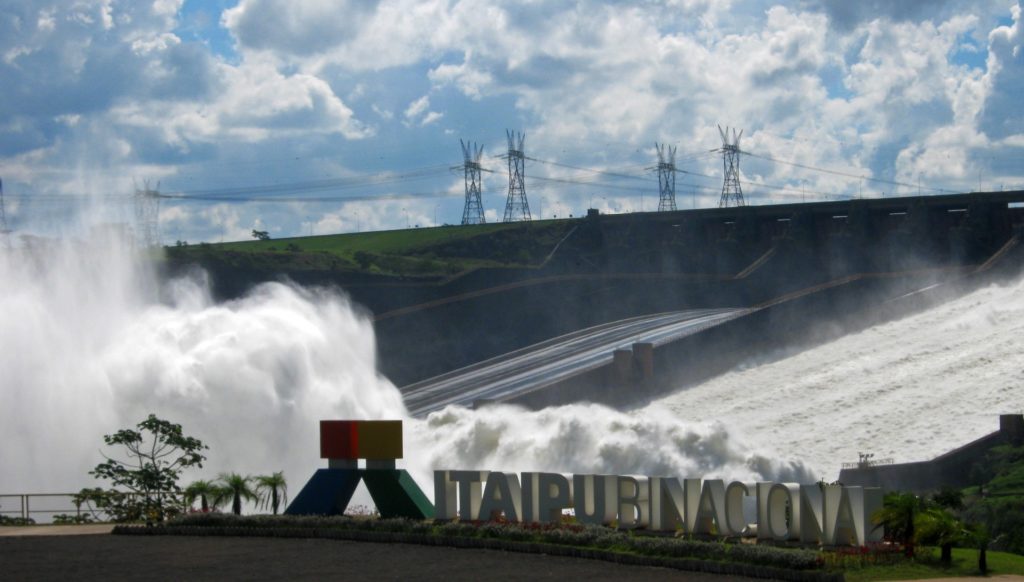RIO DE JANEIRO, BRAZIL – The meeting of Itaipu Binacional’s board of directors ended without consensus on Thursday (2). Paraguay proposed to increase operating costs and Brazil to lower them. Presidents Mario Abdo Benítez and Jair Bolsonaro will meet on Monday, December 13.
Itaipu’s general counsel, Gerardo Blanco, confirmed to Gen channel that there was no agreement on the electricity tariff to be applied next year since both countries maintained their opposing positions.
With the amortization of debt, in 2022, there will be an annual surplus of US$600 million. This same amount is what Paraguay proposes to allocate to operating expenses, which is one of the components of the tariff and the only one on which there is no agreement with Brazil.

“The position of the left bank (Brazil) is low operating expenses and of the right bank (Paraguay) high, taking advantage of the surplus that will exist as a result of the payment of the debt,” explained Mr. Blanco.
The Vice President of Paraguay and now pre-candidate for the next general elections, Hugo Velázquez, during an interview in the program ‘Políticamente Yncorrecto’ of Telefuturo, said that negotiations continue regarding the final cost of the tariff for the re-export of electric energy to Brazil, indicating that the government proposed that the price be maintained until 2023, but that, if the neighboring country does not accept, Paraguay will be able to use all the energy that corresponds to it, or in any case, sell it.
WHAT ARE THE OPERATING EXPENSES
These are those related to the administration, operation, and functioning of Itaipu. It includes all the expenses incurred by the binational company to meet its technical commitments for maintenance, operation, and labor, i.e., personnel payment. It also includes other costs related to socio-environmental responsibility.
As the issue has already been discussed in the Board of Directors and no agreement was reached, it is now before the presidents of the countries.
The next board meeting will be on December 15, therefore, after the meeting between the presidents Jair Bolsonaro and Mario Abdo Benítez. They will meet on December 13 in Carmelo Peralta-Puerto Murtinho. On that occasion, they will discuss the tariff.
ITAIPU DAM
The Itaipu Dam, the second-largest hydroelectric dam globally, is located on the Paraná River on the border between Brazil and Paraguay.
Completed in 1984, it is a binational undertaking run by Brazil and Paraguay. The reservoir ranges from Foz do Iguaçu in Brazil, and Ciudad del Este in Paraguay, in the south to Guaíra and Salto del Guairá in the north. The installed generation capacity of the plant is 14 GW.
Of the twenty generator units currently installed, ten generate at 50 Hz for Paraguay, and ten generate at 60 Hz for Brazil.
Since the output capacity of the Paraguayan generators far exceeds the load in Paraguay, most of their production is exported directly to the Brazilian side, from where two 600 kV HVDC lines, each approximately 800 kilometers (500 mi) long, carry the majority of the energy to the São Paulo/Rio de Janeiro region where the terminal equipment converts the power to 60 Hz.
The concept behind the Itaipu Power Plant resulted from negotiations between the two countries during the 1960s. The “Ata do Iguaçu” (Iguaçu Act) was signed on July 22, 1966, by the Brazilian and Paraguayan Ministers of Foreign Affairs, Juracy Magalhães and Raúl Sapena Pastor, respectively.
This was a joint declaration of the mutual interest in studying the exploitation of the hydro resources that the two countries shared in the section of the Paraná River starting from, and including, the Salto de Sete Quedas, to the Iguaçu River watershed. The treaty that gave origin to the power plant was signed in 1973.
The terms of the treaty, which expire in 2023, have been the subject of widespread discontent in Paraguay. The government of former President Lugo vowed to renegotiate the treaty’s terms with Brazil, which long remained hostile to any renegotiation.
In 2009, Brazil agreed to a larger electricity payment to Paraguay and allowed Paraguay to sell excess power directly to Brazilian companies instead of solely through the Brazilian electricity monopoly Eletrobras.

